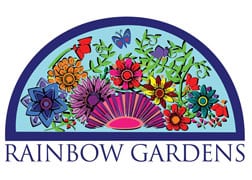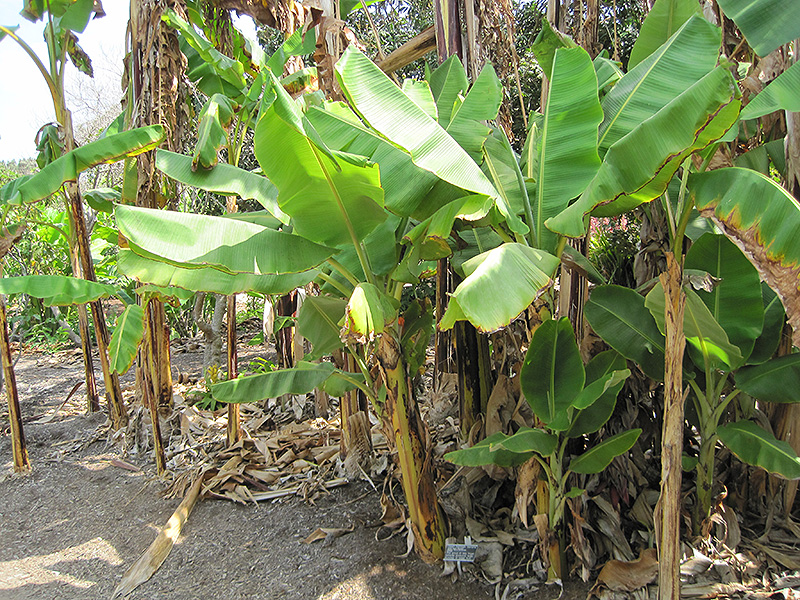Height: 8 feet
Spread: 6 feet
Sunlight:
![]()
Hardiness Zone: 8b
Description:
A dwarf banana that is not only ornamental, it produces bunches of small yellow fruit; best suited to warm temperate climates and can take light freezes; a nice garden accent or container plant
Ornamental Features
Dwarf Namwah Banana is a wonderfully ornamental plant with characteristically tropical foliage and delicious edible fruit. Its attractive enormous oval leaves remain green in color throughout the season. The fruits are showy yellow bananas carried in abundance from early to late fall.
This plant is primarily grown as an ornamental, but it's also valued for its edible qualities. The small sweet bananas are most often used in the following ways:
- Fresh Eating
- Cooking
- Baking
Landscape Attributes
Dwarf Namwah Banana is an herbaceous tropical perennial with an upright spreading habit of growth. Its wonderfully bold, coarse texture can be very effective in a balanced garden composition.
This plant will require occasional maintenance and upkeep, and should never be pruned except to remove any dieback, as it tends not to take pruning well. It has no significant negative characteristics.
Dwarf Namwah Banana is recommended for the following landscape applications;
- Accent
- Hedges/Screening
- General Garden Use
- Orchard/Edible Landscaping
- Container Planting
Planting & Growing
Dwarf Namwah Banana will grow to be about 8 feet tall at maturity, with a spread of 6 feet. It has a low canopy with a typical clearance of 1 foot from the ground. It grows at a fast rate, and under ideal conditions can be expected to live for approximately 30 years. As an herbaceous perennial, this plant will usually die back to the crown each winter, and will regrow from the base each spring. Be careful not to disturb the crown in late winter when it may not be readily seen!
Bananas are curious plants in a botanical sense. Strictly speaking they are perennials, with individual shoots rising up from underground rhizomes and maturing in one to two years, then ultimately dying after producing fruit, to be replaced by new shoots from the base. However, given their ultimate size and coarseness they almost behave as small trees in the landscape. This plant should only be grown in full sunlight. It does best in average to evenly moist conditions, but will not tolerate standing water. It may require supplemental watering during periods of drought or extended heat. It is not particular as to soil type or pH. It is somewhat tolerant of urban pollution. This particular variety is an interspecific hybrid.
Dwarf Namwah Banana is a fine choice for the garden, but it is also a good selection for planting in outdoor pots and containers. With its upright habit of growth, it is best suited for use as a 'thriller' in the 'spiller-thriller-filler' container combination; plant it near the center of the pot, surrounded by smaller plants and those that spill over the edges. It is even sizeable enough that it can be grown alone in a suitable container. Note that when growing plants in outdoor containers and baskets, they may require more frequent waterings than they would in the yard or garden.
Disclaimer - This Plant Finder tool is an online resource representing many of the varieties that we carry over the course of the season, and is intended for informational purposes only. Inventory varies seasonally, so we cannot guarantee that every plant will be in stock at all times - please contact the store directly for current availability. It does not include our entire selection of plants, so be sure to visit our store to see varieties that may not be represented on this list.

